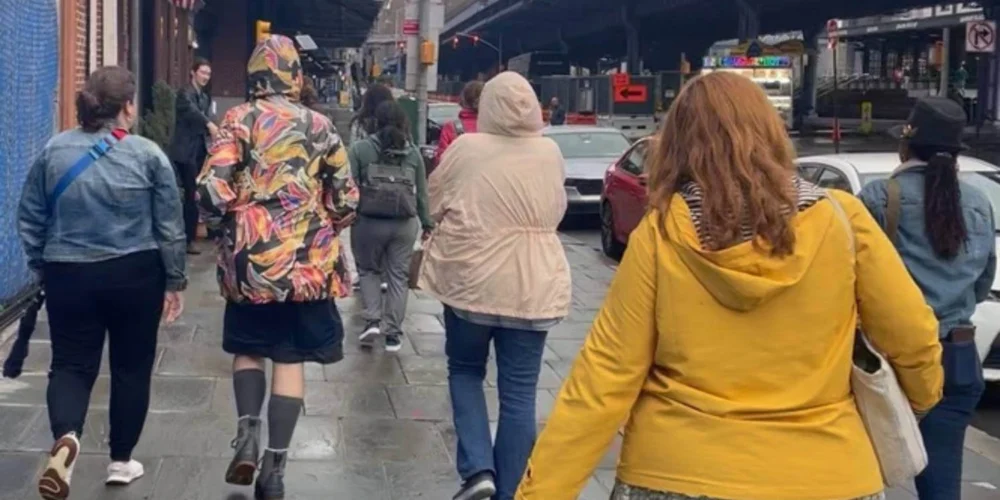Women have always been at the heart of travel – whether we’re planning solo adventures, a fun girls’ getaway, organizing a big group trip, or a family holiday. But in today’s political climate, our choices hold even more power than they already did.
Where we go, and just as importantly, where we don’t go, sends a message. As female travelers, we can influence global and local economies, uplift inclusive destinations, and withhold support from those who undermine human rights.
With every booking, every hotel stay, and every meal we choose to buy, we’re shaping the future of travel – and taking a stand without even needing to raise a sign.
This post explores how, as women, whether we are traveling alone, with friends, a group of strangers, or loved ones, or for business, we can drive real local economic impact by being intentional about where we travel and spend our money.
From travel boycotts and spending shifts to the influence of social media, brand awareness, and using our voices, this post will break down the many ways that we as female travelers can make a difference.
Because when we travel consciously, we don’t just explore the world. We can help change it.

The Power Of The Female Travel Market
It’s no secret that women dominate the travel space. Women make around 80% of all travel decisions – whether it’s deciding where to go, how to get there, or how money is spent during the trip.
Globally, women control more than $15 trillion in consumer spending. That’s not just influence. That’s economic power.
From solo travelers and travel influencers to group trip organizers, travel agents, and family vacation planners, women hold the keys to where billions of dollars in tourism revenue go each year.
When we spend with purpose, we can uplift destinations that protect human rights and marginalised communities – and pull our support from those that don’t.
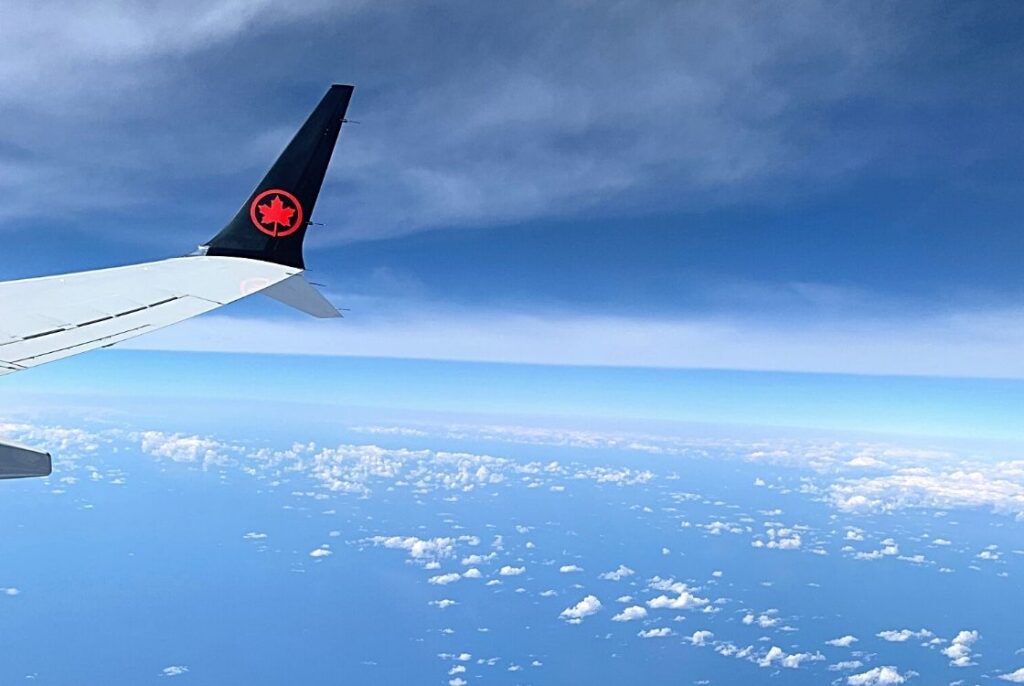
Why Travel Isn’t Neutral
Travel is often sold to us as an escape — a break from the real world, a way to relax and unwind. But the truth is, travel has never just been about beaches and bucket lists. It is inherently political whether we like it or not because it reflects our values, our privilege, and the systems we choose to support, consciously or not.
When we visit a destination, we are contributing to its economy. We stay in its hotels, eat at its restaurants, and support its local industries. That means our presence — and our spending — validates that place as a “desirable” destination. It tells tourism boards, local governments, and big businesses that their policies and practices are acceptable, even attractive.
Boycotting Places With Authoritarian Or Restrictive Regimes
So, when a destination passes laws that restrict reproductive rights, criminalizes queer identities, undermines press freedom, or fuels nationalist and anti-immigrant rhetoric (any of this sound familiar!?) — and tourists continue to flock there — it sends the message that those policies don’t matter. It tells everyone, including the government responsible for all of it, that there are no consequences for their actions. That tourists will keep coming no matter what.
But the reverse is also true — and that’s where our power lies.

By making conscious choices not to visit destinations that uphold far-right ideologies or actively harm vulnerable communities, we send a very different message: that hate, oppression, and extremism are bad for business. We tell the world that our money has boundaries and we won’t financially reward places that silence dissent or strip away human rights. We hit them where it will affect them en masse: financially.
I get it. The choice not to travel somewhere as an individual or even a group may feel small, but it adds up when thousands or millions of women do the same thing. It creates ripple effects that impact local jobs, tourism revenues, big businesses’ profit margins, and global perception. It puts pressure on destinations to either change or face continued, increasing economic losses.
We don’t always get a say in policy. But we do get a say in where we go — and more importantly, where we don’t.
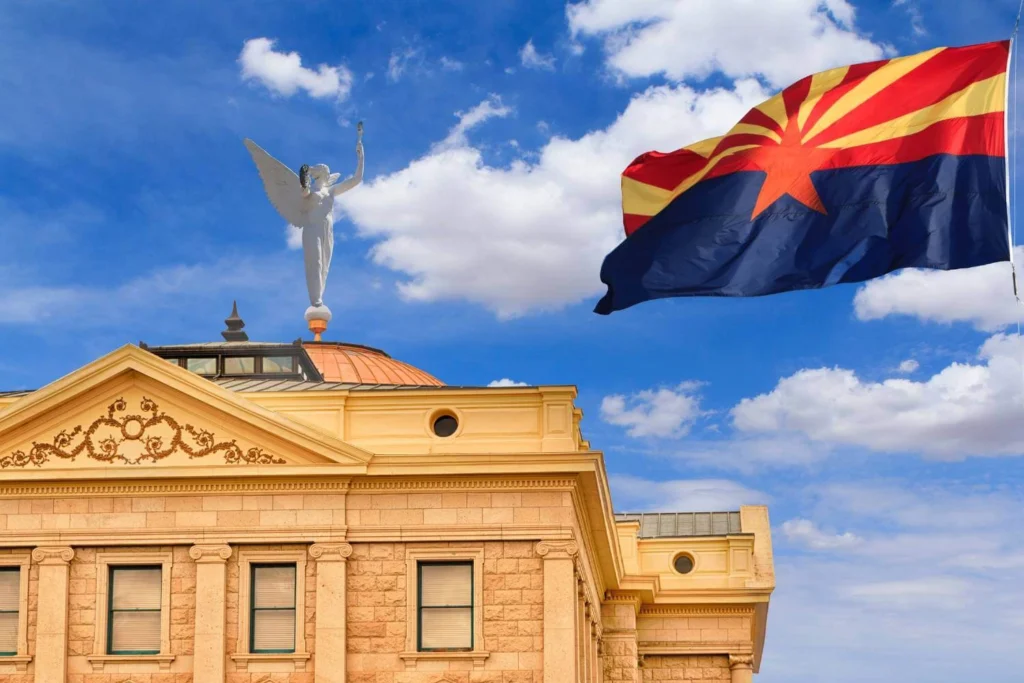
How Travel Boycotts Impact Local Economies
Travel boycotts are a very powerful tool in the fight against harmful far-right ideologies and Christian Nationalists. It’s a safe way to protest that, in some ways, has more impact than any street protest will have. These people always care about two things, amongst all their other wants and beliefs: Power and Money, which is why women’s wallets matter so much, regardless of what these men may say.
Travel Boycotts In Action: High-Profile Local Examples
- Arizona faced boycotts after introducing anti-immigration legislation. The result? A reported loss of over $141 million in economic activity is tied to canceled conventions and business events.
- Florida received travel advisories from civil rights organizations, warning tourists about hostile laws affecting people of color, women, and LGBTQ+ communities. These advisories led to calls to avoid the state and sparked national debate.
- San Francisco implemented a boycott of states with conservative laws. Though it raised costs for the city, it spotlighted the economic power of public institutions and the tourism industry.
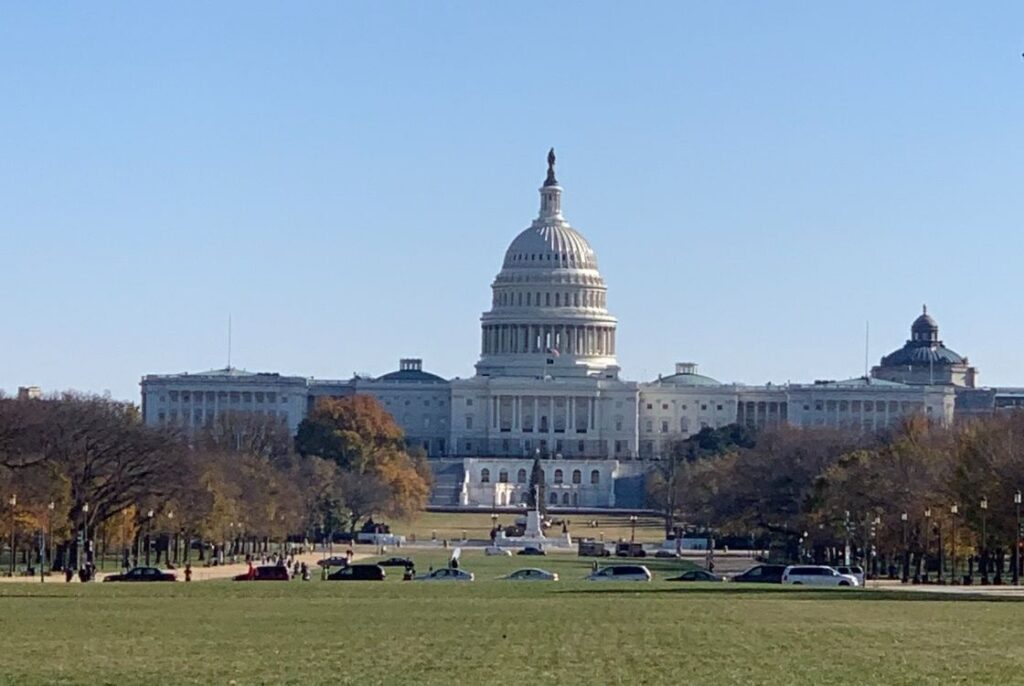
Travel Boycotts In Action: Global Examples
America: Trump & Republicans Cause Huge Tourism Declines
A 2025 report from the World Travel & Tourism Council highlighted how travel bans, anti-LGBTQ+ legislation, and trade tariffs tied to the Trump administration are projected to cost the U.S. around $12.5 billion in tourism losses this year.
America is the only country among nearly 200 tracked to forecast a decline in visitor spending.
Air arrivals dropped 2.5% between January and April, with Canadian visitors plummeting around 15% in April alone. Numerous airlines and booking platforms even scaled back U.S. operations in response.
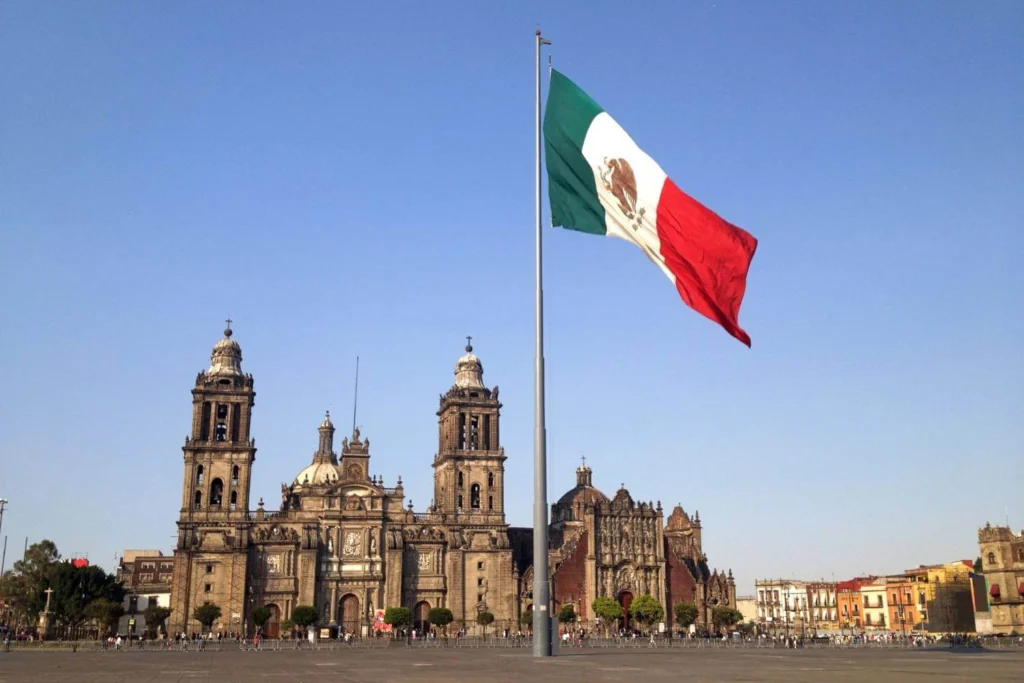
America: Canada to Mexico Travel Shift
In March 2025, there was a 13.5% drop in Canadian tourists visiting America. They are opting for Mexican destinations instead, where arrivals rose 15.6%, thanks to added flight routes and increased bookings.
It’s great news for Mexico. Mexican tourism is responsible for 8.6% of its GDP. So this shift is a big deal for the Country, which, like Canada, is being targeted by Trump. It’s a perfect example of how travel boycotts against far-right governments can then directly benefit other Countries. One country’s tourism losses become another’s gain after all.
America: China Trade & Travel Fallout
Trade tensions and tariffs in early 2025 could cost the U.S. as much as $90 billion in lost GDP due to reduced travel and export boycotts.
Canadian visitor numbers decreased sharply by 12.5% year-over-year in February and 18% in March, while tourism from Western Europe also waned.
Global Spotlight — Cuba
U.S. sanctions and bans on cruises to Cuba have battered its tourism sector. A May 2025 report revealed a tourism collapse, with Cuba losing $5 billion in 2023 alone due to ongoing U.S. restrictions. Tourist arrivals dropped dramatically (from 4.7 million pre-pandemic to just 2.2 million in 2024), severely straining local hotels, tours, and services.
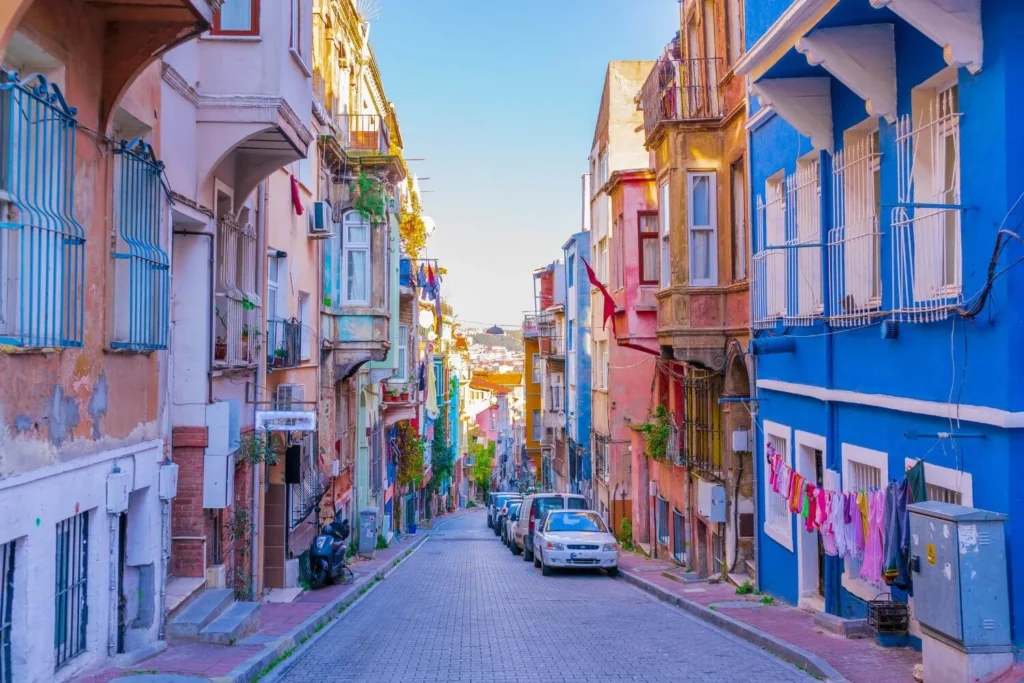
India vs Turkey Boycott
Following Turkey’s stance in the India–Pakistan conflict, over 1,500 bookings by Kolkata residents were canceled in the summer of 2025, costing Turkish tourism between ₨60–75 crore (~US$ $7–9 million). Travel platforms in India also pulled Turkish packages, showing how national opinion can directly shift travel patterns.
South Korea vs Japan (2019 Trade Dispute)
While not exclusively travel-related, the 2019 boycott of Japanese goods and tourism by South Koreans offers a compelling precedent. Credit card use in stores like Uniqlo dropped by 40%, and visits to Japanese cities fell by 10% in July–August of that year. Flights between countries were canceled, hotel revenues dropped, and Japanese exporters lost millions.
Boycotts might not change policies immediately, but they do create financial and reputational consequences.
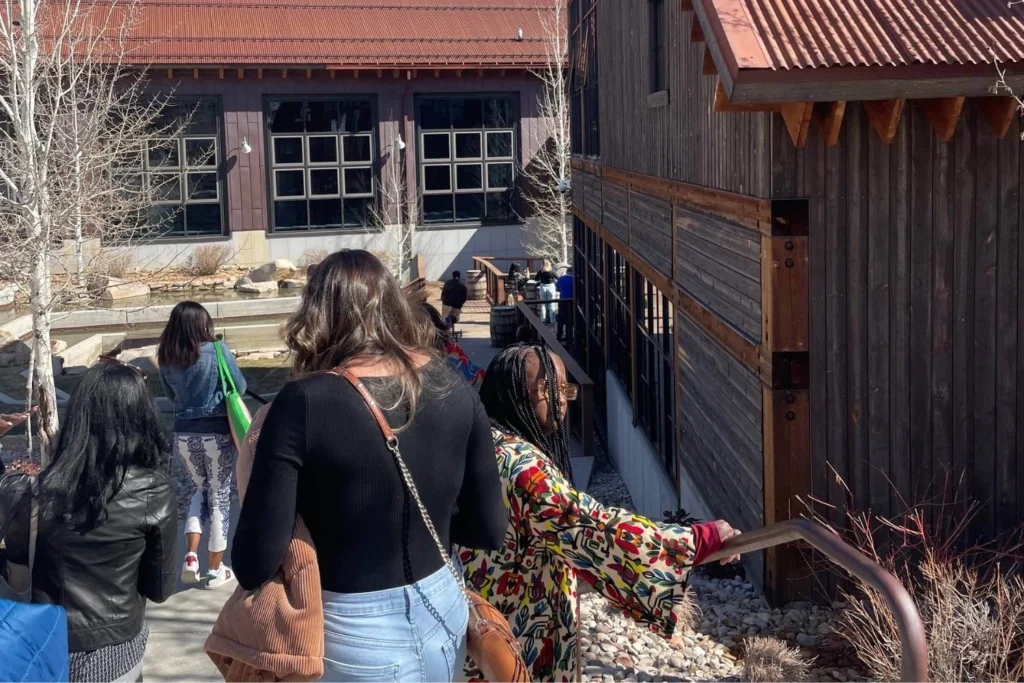
How Our Travel Choices Add Up
These travel boycotts prove one thing: That our travel choices do add up.
Momentum breeds momentum: When travel slows for large countries like the U.S. or Canada, it catches headlines — and political attention.
Tourism is a global currency: Losses in one place often create opportunities in another, like Mexico seeing a boost from the U.S. decline.
Every choice adds to the chorus: When women choose to opt in or out of destinations, our collective decisions trigger billions in economic signals.
It’s not just about geography: Travel boycotts often align with protests or policy criticism, and our bookings become votes in those ongoing conversations.
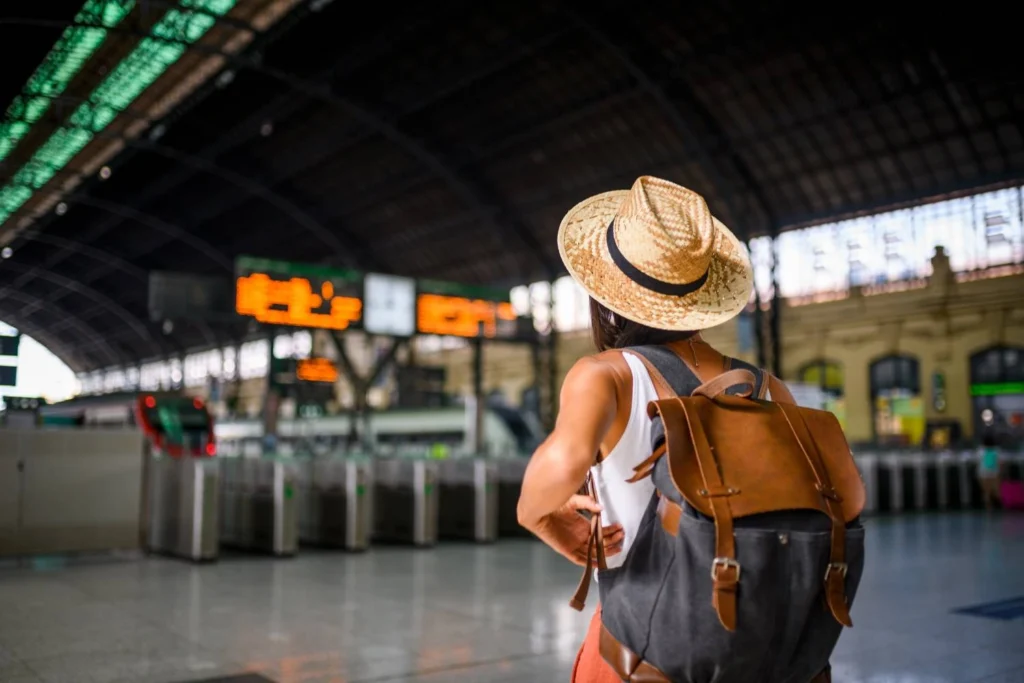
Conscious Spending That Supports the World We Want
Female travelers can vote with their wallets in simple yet impactful ways:
- Support destinations with inclusive policies on gender equality, LGBTQ+ rights, and reproductive freedom.
- Choose ethical accommodation – woman-owned B&Bs, eco-conscious hotels, or local homestays.
- Prioritize local and women-led businesses – Book female guides, buy handmade goods, eat at woman-run restaurants.
- Boycott Conservative and Christian Nationalist leaning Businesses – Avoid destinations, airlines, travel platforms, merchants, and restaurants that are aligned with regressive politics and the far-right.
Traveling with intention supports better tourism and harms economies that attack human or civil rights.

The Role of Social Media and Travel Influencers
Women also shape tourism trends online.
Female travel influencers, bloggers, and everyday travelers on Instagram, Pinterest, TikTok, and their blogs can use their platforms to not only share dream destinations but also political realities.
By choosing not to showcase destinations with harmful policies – or speaking out against them – women can shift perception and steer future tourists elsewhere.
Now more than ever, I believe that women all over the World must use their platforms to inform and educate people about destinations with harmful policies, while also promoting democratic destinations that are safe and have progressive people-first policies.
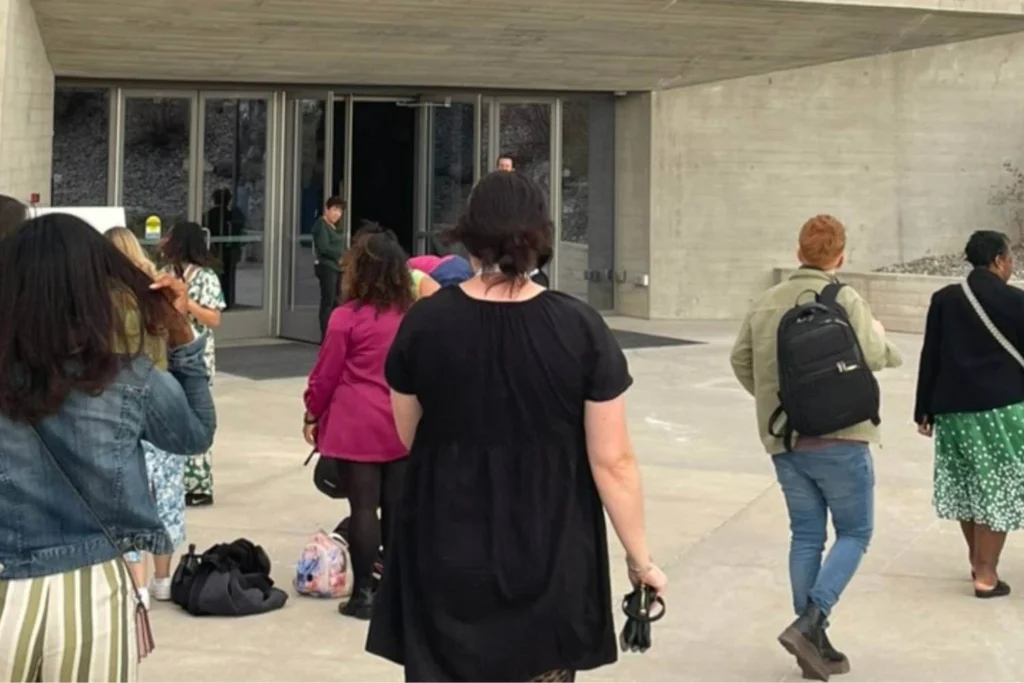
Advocacy, Collaboration, and Awareness Campaigns
There are countless advocacy groups, ethical travel platforms, and public campaigns aimed at guiding people toward responsible, values-based tourism.
Supporting these movements is an easy way to help in the fight against far-right, Christian Nationalism, and other religious extremists all over the World.
You can help these groups to:
- Educate travelers about dangerous or unjust destinations
- Encourage ethical alternatives
- Pressure lawmakers to reconsider harmful legislation
Even sharing a petition, reposting a boycott alert, or tagging an inclusive brand helps build momentum. Use your voice for good.

Brands, Donations & Political Ties
Some companies are politically neutral. Others are not.
Here are just some of the companies whose affiliations have been scrutinized:
- Uber: Donated $1M to Trump’s inaugural fund
- Boeing: Also gave $1M to Trump’s inaugural fund
- TJX Companies (TJ Maxx, Marshalls, HomeGoods): Sold Trump-branded products
- Revlon: Tied to Ronald Perelman, who donated to Trump-affiliated groups
- Estée Lauder: Family members have contributed heavily to Republican (GOP) candidates
- Airlines: American, Delta, and United all have PACs with right-leaning donation histories.
- Gap Inc. and LVMH: Executives have personal conservative donation records.
Resources like OpenSecrets.org help travelers research political donations and make informed choices.
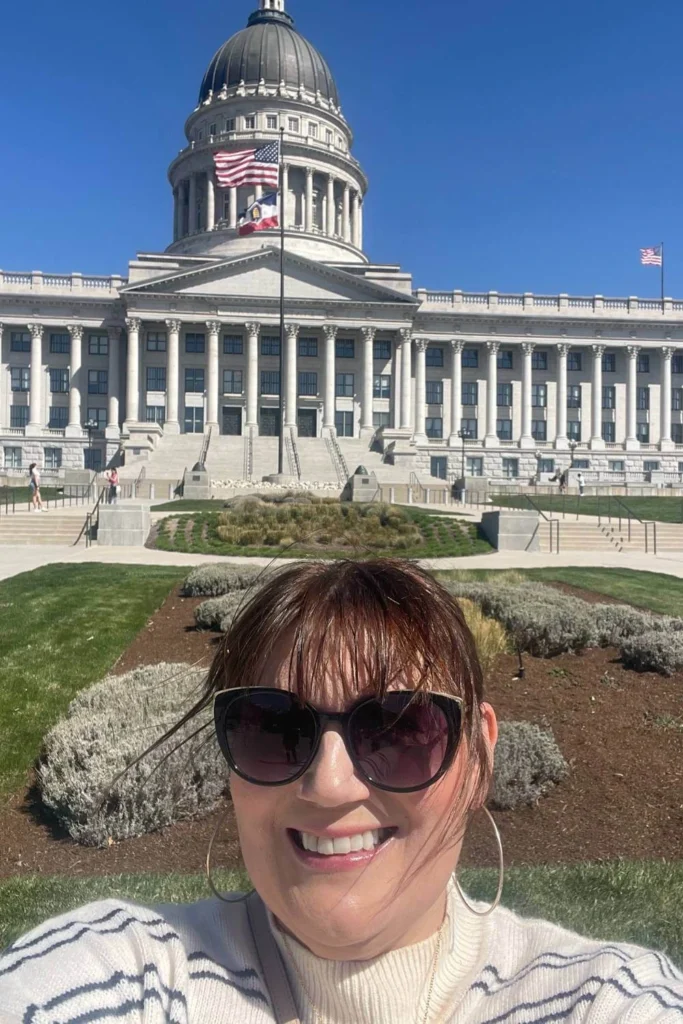
American States With Far-Right Governments
As of January 2025, far-right ideologies are on the rise. These are destinations to watch closely.
U.S. “Red States” With Far-Right Policies:
- Alabama
- Alaska
- Arkansas
- Idaho
- Indiana
- Kansas
- Kentucky
- Louisiana
- Mississippi
- Missouri
- Montana
- Nebraska,
- North Dakota
- Oklahoma
- South Carolina
- South Dakota
- Tennessee
- Texas
- Utah
- West Virginia
- Wyoming
Countries Governed by Far-Right Parties
- Austria: Freedom Party (FPÖ)
- Italy: Brothers of Italy, led by Giorgia Meloni
- Hungary: Fidesz Party, led by Viktor Orbán
- Poland: Law and Justice Party (PiS)
- Finland: The Finns Party
- Sweden: Sweden Democrats
- Netherlands: Party for Freedom (PVV)
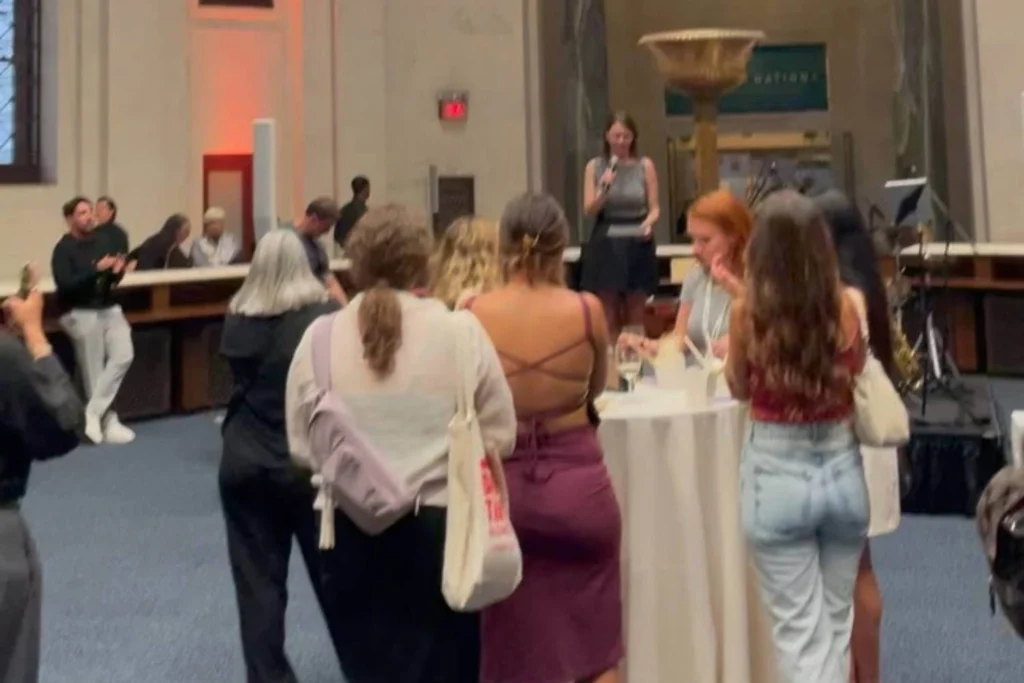
Travel With Power and Purpose
As women, we carry a lot of influence, both individually and collectively.
All the choices that you make in how you live, where you go, and how you plan, spend, and share on your travels matter. Whether we’re traveling alone, with friends, on a group trip, or planning our family’s next holiday, our choices ripple out far beyond ourselves. That’s why your money — and your voice — are powerful tools.
Every plane ticket. Every hotel booking. Every decision to show up — or not to — sends a message.
Far-right ideologies, Christian nationalism, and extremist politics thrive in silence, complacency, and apathy. They bank on the majority of people saying and doing nothing while they strip away rights, freedoms, and protections.
But when women travel with intention, we become part of the resistance. Quietly, powerfully, and economically. So you don’t need a sign to protest or a podium to speak out. You don’t have to be loud to make an impact. You just have to be thoughtful. You only need to ask yourself:
- Where do I want my money to go?
- What kinds of destinations and governments deserve my support?
- Who do I want to stop funding?
- What kind of world am I helping to shape, one trip at a time?
Because when we travel consciously, we’re not just choosing where to go. We’re choosing what kind of tourism — and world — we want to help build.
And that future? It can be fairer, freer, and more inclusive — if we choose to make it that way, one decision at a time.
Learn More About American Politics
- Antifa Explained: Extremism, Myths, And Violence In America
- Independent Media To Follow: Join The Voices Defending Democracy
- The Information War: Lies, Algorithms, and How Disinformation Undermines Democracy
- How To Build A Smarter News Feed And Fight Propaganda
- We’ve Seen This Movie Before: Films That Predicted America’s Authoritarian Turn
- Countering Banned Books In America: Essential Reads On Racism, Religion And Democracy
- Organizations Fighting Trump and The GOP: Advocacy Groups and Watchdogs You Should Support
- Pete Hegseth And The Christian Takeover Of The Pentagon
- Why Christians Think They Should Rule America
- 2024 US Election: How Elon Musk & Republicans Stole It In Plain Sight
- Boycott America: Should I Visit The US During Trump presidency?
Share Me
If you found this post helpful, share it or pin it! It’s one of the best ways to show your support. Thank you!
Gemma Lawrence is a British expat, solo female travel blogger, and the creator of This Brit’s Life — a travel and lifestyle blog that helps women explore the world confidently, live abroad independently, and stay informed about global issues.
Born and raised in England, Gemma has been living in British Columbia, Canada since 2016 and has been traveling solo for over a decade. With a background in journalism and over ten years of experience in digital marketing and communications — including leadership roles with the International Association of Business Communicators (IABC/BC) — she brings both storytelling and strategy to her writing.
Through her posts, Gemma shares practical solo travel advice, expat insights, and confidence-building resources, while also covering broader topics like women’s rights, democracy, and self-care. Her goal is to inspire independence, awareness, and personal growth — one adventure at a time
